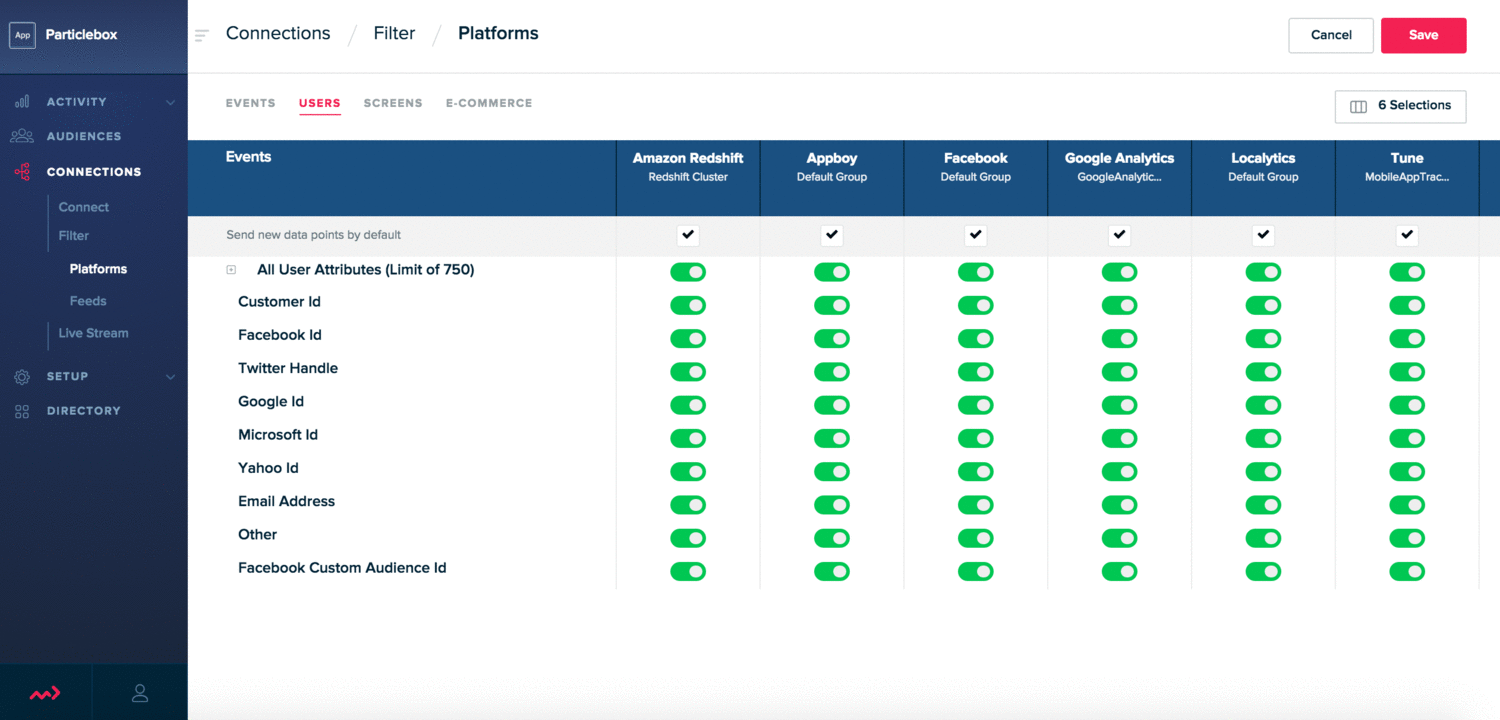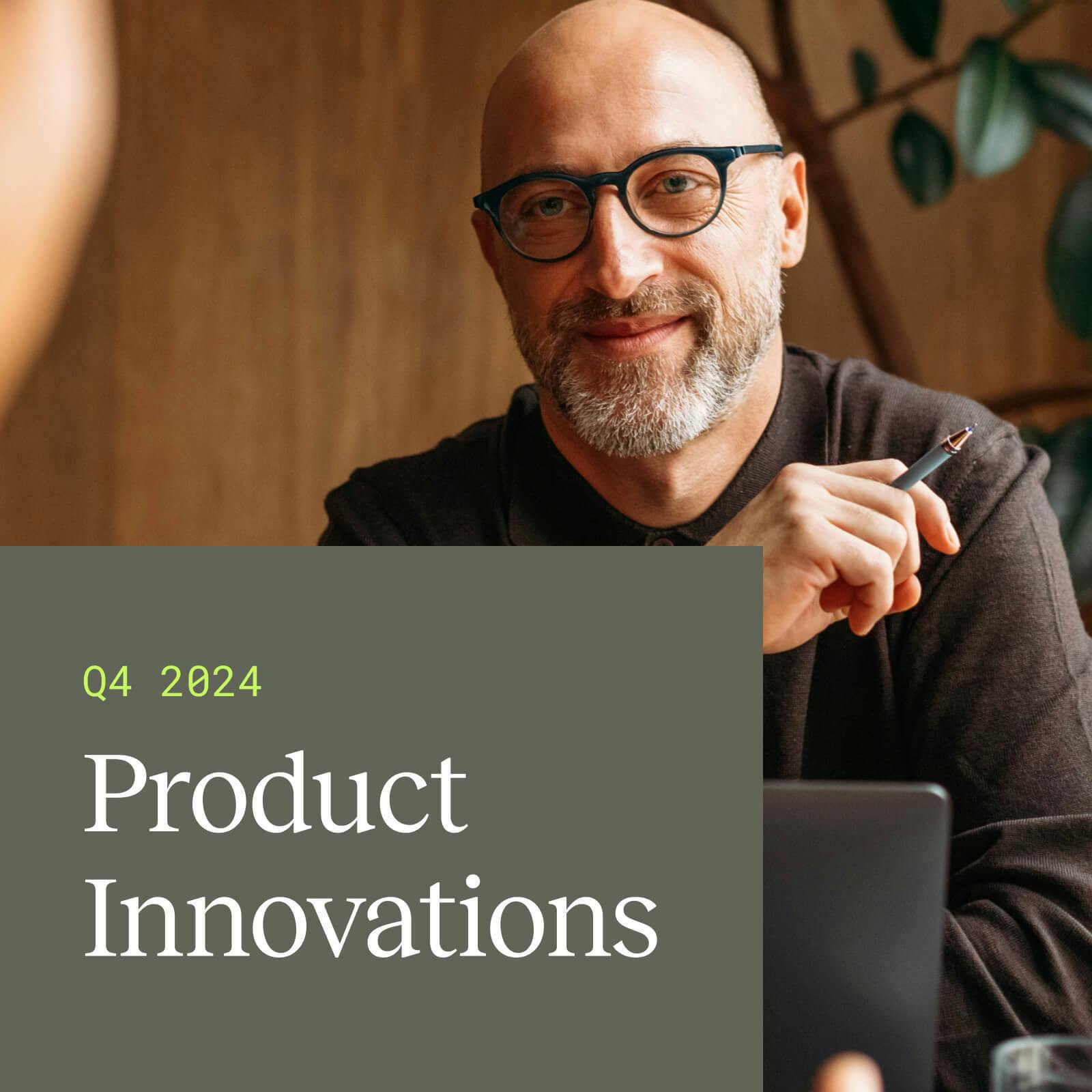Data filters
mParticle Data filters allow brands to control, at a very granular level, what type of data is sent to which service without engineering resources.

To deliver the highly personalized, multi-screen experiences customers have come to expect, marketers make use of a number of different third-party services. When not managed properly this can create a major privacy risk for the business.
When you install a service's black box, mobile SDK or web tag, for example, it’s nearly impossible to monitor and manage what data is being collected.
In all likelihood, the third-party services your company is using have the best intentions. But if they fall victim to a data breach, the customer won’t care who is actually at fault – they will likely blame you and not some SaaS vendor or hacker group they have never heard of.
With 61% of marketers, believing that privacy concerns will impede their personalization and data-driven marketing efforts, brands need to put in place — and enforce — a governance model that balances the needs of the business without sacrificing user privacy.
mParticle acts as a filter between your data and those services – allowing you to control, at a very granular level, what data is sent to whom. In all likelihood, your ad server doesn’t need to know people’s name and addresses, and your email platform doesn’t need to know their cookie IDs. With mParticle, you can systematically ensure that information never gets to them.
Just like that, a task that would otherwise require days of engineering work becomes a push-button process in the mParticle platform.
Here’s how Data Filters work:
|
 |


